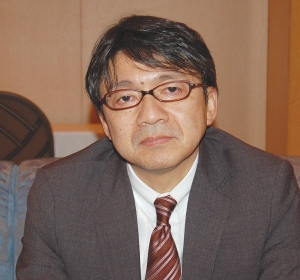The head of Japan’s umbrella dairy organisation says the industry is “really worried” about TPP’s impact on the rural sector where dairy farmers form an integral part of society.
Hirofumi Maeda, senior managing director of Japan Dairy Association (J-milk) says the industry has made its views known to the Government. If dairy is to be included in the TPP deal, he expects the Government to negotiate with the industry.
“We haven’t heard anything so probably dairy is not an item,” he told Dairy News on the sidelines of the World Dairy Summit in Yokohama earlier this month.
Speaking through an interpreter, Maeda declined to say whether a TPP deal should be sewn up by the end of next month. Most of the 12 countries in the TPP negotiations – US, Australia, New Zealand, Canada, Mexico, Japan, Malaysia, Vietnam, Chile, Mexico, Peru and Singapore – are hoping to conclude a trade deal by next month.
Japanese negotiators are facing pressure to make concessions, particularly on farm products. However, the agriculture sector is applying pressure on the Government to protect them. Japanese farmers oppose the TPP, fearing the accord will wipe them out by triggering an influx of cheaper imports.
Some Japanese media reports suggest the Government will be seeking to exempt agriculture – particularly rice, wheat, beef and pork, dairy products and sugar – from the pact.
Last month Japanese Prime Minister Shinzo Abe again pledged to fight for Japan’s trading interests.
Maeda says the industry isn’t keen to pass an opinion on TPP negotiations. “We believe our Government is trying to secure an appropriate position. Therefore they know what’s best for Japan. Whether it concludes quickly is entirely up to our Government. However, we have made our views known and the Government knows what we want.”
J-milk represents dairy farmers, dairy processors and milk retailers nationwide. Japanese farmers produced 7.6 million tons of milk last year, of which 53% (4m tonnes) was used as drinking milk, the rest for cheese, butter and dairy product manufacturing. The local milk meets only two-thirds of the total demand so Japan imports dairy products from Oceania and China.
According to Maeda, Japanese dairying is highly valued by its people. In rural areas effluent from dairy farms is widely used as fertiliser by vegetable, rice and fruit growers. With an ageing rice farmer population, dairy farming is taking up land being yielded by the rice sector.
In many rural towns dairy farmers are playing an active role in their communities, he adds.
“In many rural communities you see only children and the elderly because young parents leave home to work in nearby cities.
“In these circumstances, dairy farmers play important roles in school parent teacher associations; they serve as volunteer firemen and in some cases, take up politics at the local government level.
“So everyone including the Government has a special feeling towards dairy farmers. If a free trade deal comes in and impacts our dairy industry, it will destroy rural communities.”
• Sudesh Kissun attended the World Dairy Summit with assistance from Asia NZ Foundation.
















